Optimize steam usage in refinery flares
In this study, methods to optimize the consumption of dispersion steam in flares were examined at a large refinery that burns a considerable quantity of gas. The desired optimization was achieved by monitoring hydrocarbon emissions using an infrared camera (thermography).
IP: 10.2.165.46
This is a preview of our premium content. Thank you for your interest—please
log in or
subscribe to read the full article.
The Authors
Machado e Silva, C. F. P. - Petrobras, Rio de Janeiro, Brazil
Carlos Fernando Pinto Machado E Silva began working at Petrobras in 2003 as a processing engineer, and has since gained extensive experience in various refining processes in the areas of operation, optimization, engineering projects and scientific research. In 2015, he helped set up a study group on oil geopolitics at the Brazilian Defense Ministry’s School of War. In 2016, he completed his doctorate in the area of chemical process technology at the Federal University of Rio de Janeiro (UFRJ). Throughout his 19-yr career, Dr. Machado has published several articles in technical journals. He has also been a member of the American Institute of Chemical Engineers (AIChE) since 2010. Dr. Machado earned a BS degree in chemical engineering and an MS degree in organic chemistry at the UFRJ.
Carmona, M. A. - Petrobras, Rio de Janeiro, Brazil
Maria Angélica Carmona is a process engineer with a degree in chemical engineering from the Federal University of Rio de Janeiro (UFRJ) and an MS degree in downstream process engineering at Pontifical Catholic University of Rio de Janeiro (PUC-RJ), Brazil. She has experience in energy efficiency, emissions inventories, utilities and diesel hydrotreatment plants. Ms. Carmona works at the Petrobras Research Center developing research on atmospheric emissions and technical assistance for the upstream, downstream and maritime sectors.
Ribeiro, L. S. - Petrobras, Rio de Janeiro, Brazil
Leonardo da Silva Ribeiro is a process engineer with experience in atmospheric emissions, safety, environment and health. He has a degree in chemical engineering and an MS degree, both from the Federal University of Rio de Janeiro (UFRJ). As part of his MS degree, he studied the impact of natural gas in greenhouse emissions in Rio de Janeiro. He is developing studies in atmospheric emissions in new Petrobras projects.
Gliese, R. - Petrobras, São Mateus do Sul, Brazil
Roberto Gliese is a process engineer with experience in research and development in combustion. Before joining Petrobras in 2004, he worked in the coal mineral industry. Dr. Gliese has a degree in chemical engineering, in addition to an MS degree and a PhD in engineering, both from the Federal University of Rio Grande do Sul (UFRGS).
Tonel, T. L. - Petrobras, São Mateus do Sul, Brazil
Thiago Lopes Tonel has worked extensively in research and development in the coal industry since 2000. He now monitors fugitive emissions in storage tanks throughout all Petrobras terminals.
Related Articles
From the Archive



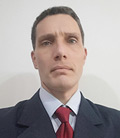
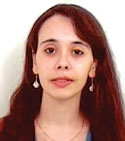
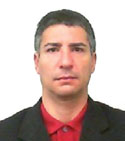
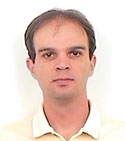
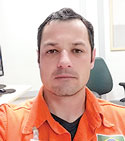



Comments